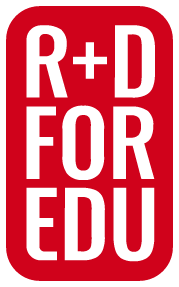Unidad 1

En esta primera unidad, nos enfocamos en nuestro «yo». Nos preguntamos, exploramos, identificamos, nos jactamos y, sobre todo, nos amamos. Y nos gusta su lado español que se está convirtiendo en una parte integral de nuestro ser.
Pregunta básica: ¿Quién soy yo?

Simone de Beauvoir escribió: “No naces mujer, te conviertes en una.»
En cierto sentido, este es el caso, independientemente de nuestras circunstancias sexuales, biológicas, sociales y culturales: debemos convertirnos en la persona que vamos a pasar a través de nuestro material genético, su herencia familiar, su educación de la familia y la escuela, y quizás especialmente a través de amistades e influencias sociales. En esta primera unidad, abordamos, entonces, la cuestión fundamental de la identidad.
Exploraremos quiénes somos, cómo llegamos a este «yo» que nos expresa con fluidez y en quién podemos convertirnos como resultado de nuestros estudios, experiencias y los variados caminos que seguiremos algún día. Como nos encontramos en un curso de español, por supuesto comenzaremos la cuestión de nuestra identidad hispana, una interseccionalidad emergente porque el estudio de un idioma extranjero agrega una dimensión multicultural que, incluso si decidimos abandonar nuestro estudio de este lenguaje siempre nos seguirá tocando de una forma u otra.
Lo aprendido de la primera unidad (1)
LFO : Primer nivel de unidad IL o IM
Interpersonal: I can request and provide information tin conversations on familiar topics–I can interact with other to meet my basic needs in familiar situations–by creating simple sentences and asking appropriate follow-up questions.
Oral:
I can exchange info about types of music and movies people prefer. [EM, TA]
I can participate in a conversation about a curation I am planning on an important person.* [EM, TA]
I can interact to arrange a meeting [EM, TA]
I can interact to ask for clarification by asking specific questions. [EM, TA]
I can interact to share ideas about where I would prefer to live and why. [EM, TA-might come up]
Escrito:
I can exchange e-mail/texts/chats with my conversation partner about my curation.* [EM]
I can interact online to get help related to an assignment. [EM, TA, emails with prof, Itzel, class]
(IM) I can exchange comments related to my edits on a draft composition. [curation-peer edit]
Presentational : I can present personal information about my life, activities and events, using simple sentences.
Oral:
I can retell a story that I’ve read or heard [curation, class work]
I can present on familiar and everyday topics, using simple sentences [curation, class work]
(IM)I can give a brief history of a famous person, landmark , or cultural event.[curation, class work]
Escrito:
I can write a description of the physical appearance and personality of a friend or family member or famous person.[class, curation]
(IM)I can create a CV for myself once I complete VCU for a job that entails using Spanish.[CV]
I can write a short report about a topic I have learned about or researched on the job or in school.[curation]
I can write questions to obtain additional information about something I read online.[EM, email]
I can write an outline or draft of a presentation that I plan to present orally. [curation & autobiographical presentation]
I can write a simple profile of a famous athlete, celebrity, or historical figure.[curation]
Interpretativo:
Oral:
I can follow simple directions (eg. cooking) from a YouTube video.[class]
I can identify some major events in a recorded (children’s) story.[REAL, curation]
I can identify the main idea in short conversations.[EM, TA]
I can understand the place, time, and purpose that someone mentions in an invitation.[EM,TA, class]
I can understand basic questions or statements during a video conference with peers.[EM, TA]
I can understand conversations by students in a partner school during a Skype call. [EM, TA]
Escrito: I can identify the topic and related information from simple sentences in short informational texts.
I can understand the major elements in the life story of a well known person. [curation, class]
I can identify the topic and related information from simple sentences in short fiction or nonfiction texts [curation, class, RÉEL]
Comunicación intercultural:
In my own and other cultures I can compare how people express time and think about it in similar and different ways.[EM, TA]
I can consider socially appropriate times and punctuality when inviting someone to go work with me online.[EM, TA]
In my own and other cultures I can compare how attitudes toward informality and formality in my own culture and in that of my exchange partner.
Esto es lo que vamos a hacer para lograr el «Yo puedo». . . De LFO en esta unidad :
- Encontrar un artículo reciente en la prensa hispanoparlante que sirve como o se trata de una biografía de una persona con renombre, que tiene fama. Evidencia: respuesta a preguntas en el manual y en progreso (posiblemente usado en la creación de una autobiografía – ver abajo).
- Cómo hablar y escribir fácilmente y sin dudar sobre quién eres tú, cómo eres, qué haces normalmente y un poco sobre cómo llegaste a tu identidad actual (incluidos tus estudios lingüísticos y culturales). Evidencia: pequeño clip de Zoom con un compañero del curso SPAN 202.
- Cómo describirte a ti mismo usando adjetivos y oraciones relativas, mientras manejas las formas, géneros y números correctos y apropiados. Evidencia: autobiografía de una página que te ayuda a preparar su primer intercambio virtual.
- El comienzo de su búsqueda de una carrera globalizada basada en su especialización. Volveremos a la última unidad. Evidencia: borrador de una carta de auto recomendación basada en sus estudios y su trayectoria profesional elegida.
- El logro de crecientes habilidades lingüísticas y culturales, especialmente en modo interpretativo, presentativo e intercultural a nivel de IL. Evidencia: LFO.


Sugerencias/Erratas